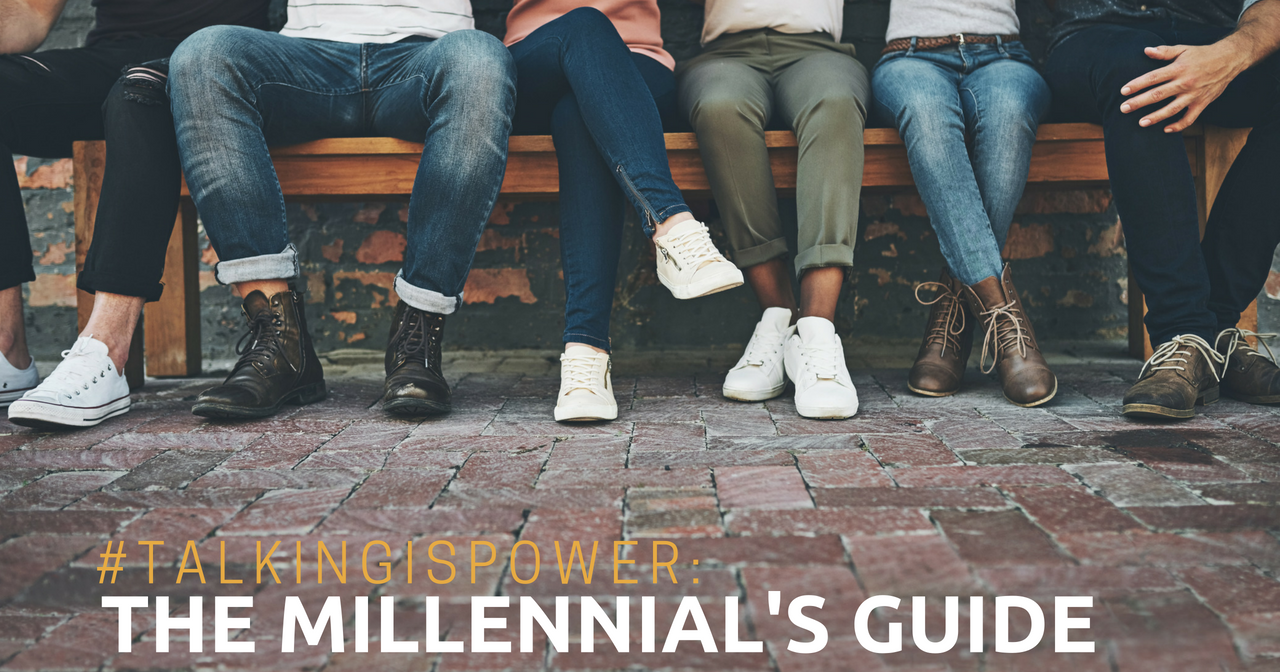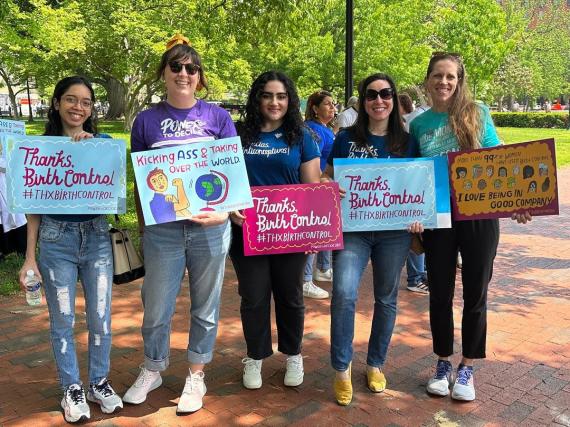The Millennial’s Guide to Having “The Talk” With Young People: #TalkingIsPower 2018
We all know “The Talk” is an important—and sometimes awkward—conversation about sex, love, and relationships that often happens between parents and their children. But did you know “The Talk” is not limited to just parents and guardians; and that it's even better if it's not just a one-time deal? Continually talking with kids about these topics throughout their lives is the best approach. And any older champion, mentor, or advocate for young people can join and support parents in having these important discussions.
In fact, Millennials (adults ages 22–37) are in a unique position to have a positive influence on the young people in their lives. Sometimes it’s less intimidating for adolescents to speak to an older sibling, a trusted coach, or a favorite older cousin than their parent or guardian.
So, even if you don't have children of your own, you can still make a difference in a young person’s life. Don’t know where to start? We have some basic guidelines you can follow to spark meaningful conversations about sex, love, and relationships with the young people you care about most. Check them out:
1. Be yourself!
This may sound too easy but it’s a great golden rule. Remember the young person in your life trusts you because of who you are. When you approach them to talk about sex, you don’t have to put on your “adult voice” or your “cool voice.” You don’t have to adopt slang you think they might use. Just talk to them the way you normally would. It will help both of you to feel at ease.
2. Go with what you know!
If you are close enough to a young person to talk to them about sex, draw on your prior experiences with them. Use your knowledge of their interests to open the lines of communication. For example, if you know they watch a certain television program you’re familiar with, you can use a recent episode that involves sex, love, or relationships to ask them their feelings on that subject. Think about a recent event in popular culture they might know about as a conversation starter.
3. Get vulnerable!
You don't have to reveal anything you don't want to, but try talking about your teen years as a way to get them to open up and relate. You might share some mistakes you made when you were their age—and what you learned from them. You might talk about a great relationship you had and what made it so awesome. You don’t have to pretend as if you did everything right just a few short years ago. Young people sometimes fear adults have forgotten what it feels like to be a teenager. As a Millennial, you are likely closer in age to them than their parents are. This is an advantage! Remind your young person that you remember what it’s like to be in their shoes.
4. Be an active listener.
Young people are often afraid to open up to adults about sex, love, and relationships for fear of a lecture. Sometimes, if the situation they’re talking about isn’t serious, it’s okay to just let them vent. They might need a shoulder to lean on or a compassionate ear to listen. If they have something to tell you, try to listen carefully without interrupting. Take note of their body language. Hold on to key parts of their monologue for a possible discussion a little later. When they have finished talking, ask them if they want your advice or perspective on what they just told you. Your young person may ask for your input; they also might just need someone they trust to truly listen to them.
5. Make them laugh!
Seriously. Most adults approach “The Talk” as a very sobering event, which helps contribute to the utter awkwardness both adolescents and their champions feel about it. If you’ve ever been in a room full of teenagers who are learning about sex, you might hear them giggle out of embarrassment. While sex is nothing to be embarrassed about, laughter does help to disarm people. Don’t think you have to stay serious just because you’re talking about real life. Love and relationships provide so much material to chuckle at. Even a corny joke can help crack a smile and break the ice during an uncomfortable moment.
The most important thing to remember when you’re having “The Talk” with young people is that they really do want to hear what you have to say about sex, love, and relationships. (Even if they don’t seem like it.) They look up to you as a mature young adult who is perhaps not as “old” and out of touch as their parents. Use your special connection as a trusted Millennial mentor with care, whether you’re a close cousin, coach, counselor, or an older sibling. You can help ensure the young person in your life has enough support, knowledge, and power to decide if, when, and under what circumstances to get pregnant.



